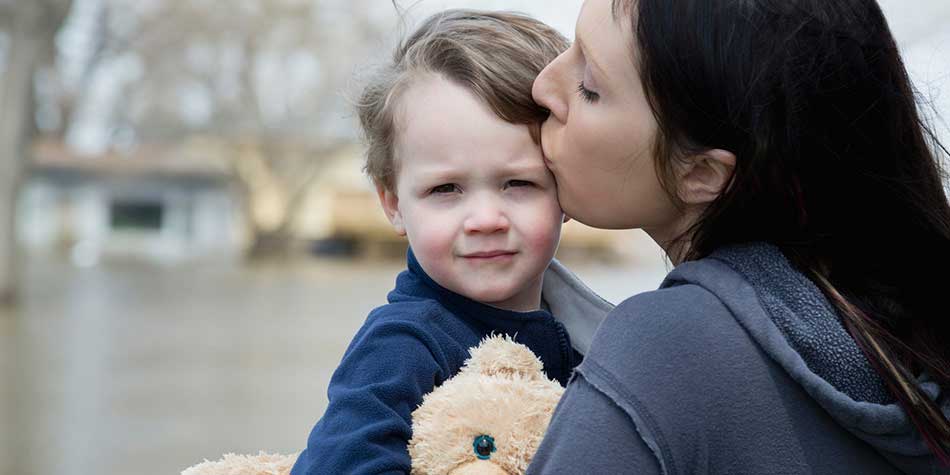
Each person's response to a traumatic event is different; people experience stress and anxiety in their own way. Responses to disaster can appear immediately after the event or months later. Either way, it’s important to know that you are not alone in your pain and that there is help.
Responses to disaster
Commonly observed responses to disasters include:
- Disbelief and shock
- Fear and anxiety
- Disorientation
- Emotional numbness
- Irritability and anger
- Sadness and depression
- Feeling powerless
- Extreme hunger or lack of appetite
- Difficulty making decisions
- Crying without cause
- Headaches and stomach problems
- Difficulty sleeping
- Excessive drinking or drug use
What you can do
Although these feeling are not unusual, there are plenty of methods you can use to manage the stress, pain and anxiety that may be associated with the aftermath of a disaster.
Try these coping mechanisms as you pave the way to a healthier and happier lifestyle:
- Talk about it. Not expressing your feelings will keep you from being able to work through what happened. By talking with others, you will relieve stress, realize that other people share your feelings and know you are not alone.
- Take good care of your physical health. Get plenty of rest and exercise. Remember to eat well. Avoid excessive drinking and risk-taking activities.
- Take good care of your mental health. Do things that you find relaxing and soothing. Give yourself time to grieve. Recall other times you have experienced strong emotions and how they were resolved.
- Spend time with your family and friends. If you have children, encourage them to discuss their concerns and feelings with you.
- Try to resume your normal activities. As soon as it feels comfortable, go back to your usual routine.
- Do something positive that will help you gain a greater sense of control. Examples of this include giving blood, taking a first aid class or donating food or clothing.
- Ask for help. If you feel overwhelmed by the disaster, it is not a sign of weakness.
- Stay informed. Not knowing what is happening may increase stress or anxiety. Use reliable sources of information to keep up with the situation.
If you are troubled by feelings that will not go away for more than 4-6 weeks, you should seek help right away.
$webqFacilityNumber
Need a Physician?